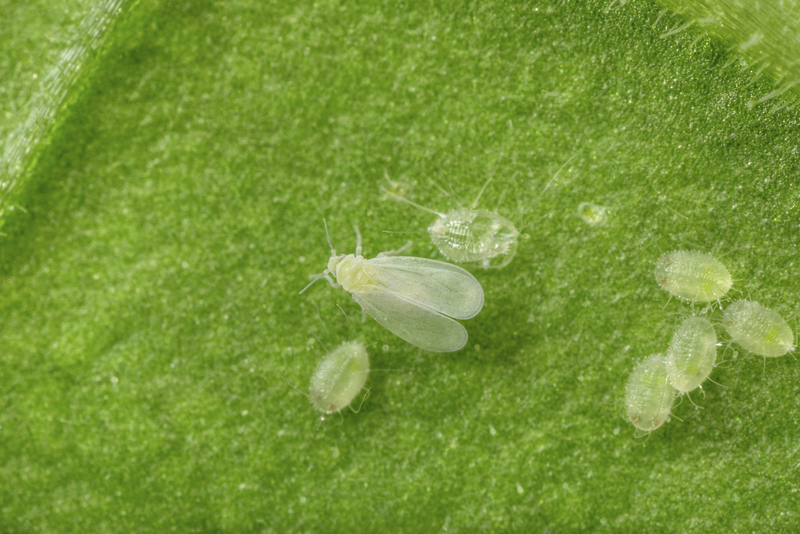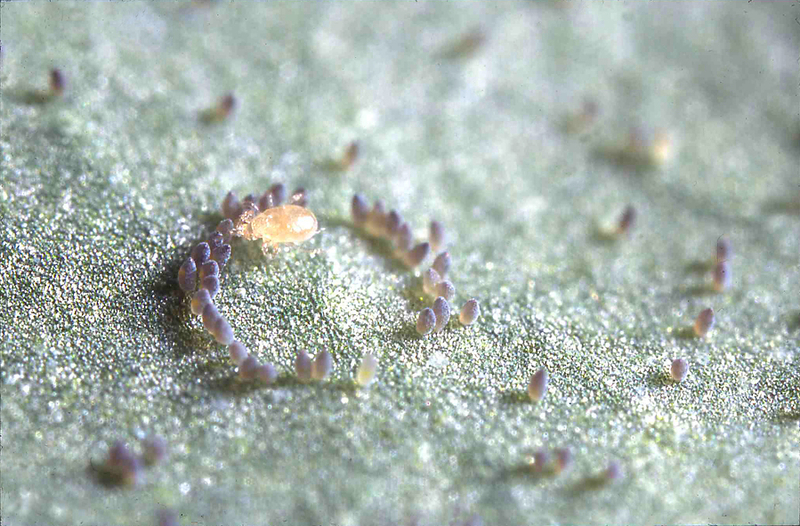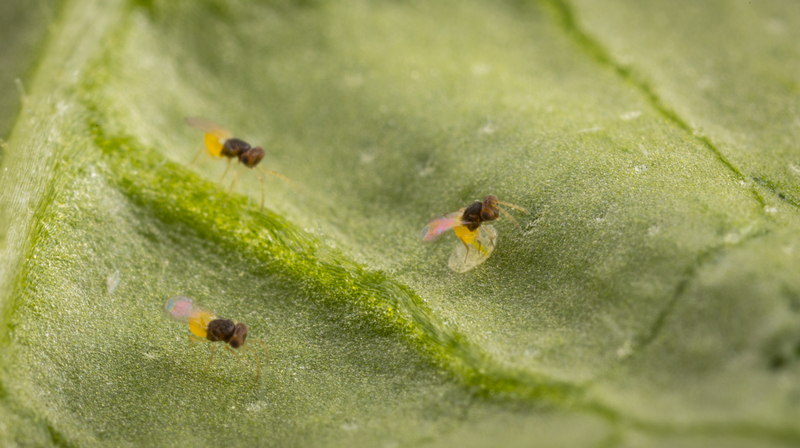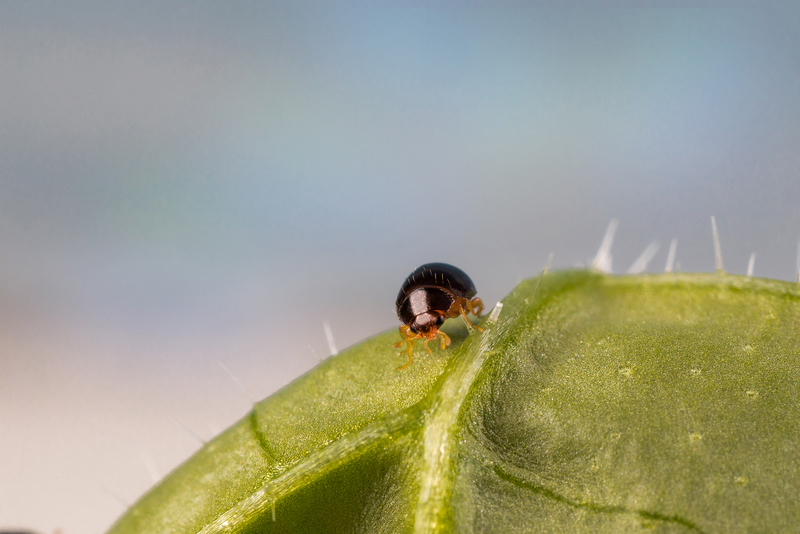Ercal
 Adult Trialeurodes vaporariorum
Adult Trialeurodes vaporariorum
Whitefly in your crop? You don’t have to go into battle alone! Biological control is to the rescue. Predatory mites and parasitic wasps are just two examples of predators that are particularly fond of whitefly, but predatory bugs and predatory beetles are also effective. The following is a brief overview of the key allies in the fight against whitefly.

Predatory mites
Amblyseius swirskii and Amblydromalus limonicus
- These predatory mites feed on the eggs and young larvae of the whitefly. They also eat other pests.
- They roam 24 hours a day, consuming 90% to 95% of the eggs and larvae.
- Predatory mites are often used preventively, before a pest is known to be present. Many growers use them year-round, a little like a ‘standing army’ designed to combat the whitefly. Predatory mites survive by eating other pests and pollen.

Parasitic wasps
Encarsia formosa and Eretmocerus eremicus
- Encarsia formosa is particularly effective at combating the greenhouse whitefly, while Eretmocerus eremicus is primarily used against tobacco whitefly.
- Parasitic wasps act as a parasite to the larvae of whitefly by laying eggs in the larvae itself, producing yet another parasitic wasp. Parasitic wasps are experts at tracking down whitefly, which they primarily do by smelling the plant’s reaction to the whitefly.
- Parasitic wasps can be used preventively but can also be deployed as soon as the first signs of whitefly are spotted.

Predatory beetle
Delphastus catalinae
- The ladybird survives entirely by consuming whitefly in each of its stages.
- The predatory beetle is used primarily in horticulture, particularly on gerbera and rose,
- While the ladybird tends to be deployed in whitefly nests or ‘hot spots’, predatory beetles act as a sort of fire extinguisher, eroding as much of the infestation as possible. If the mature beetles feel that they have too little to eat, they will fly on to a different spot. The mature beetles will only lay eggs once they are certain that there is enough food to raise their offspring.